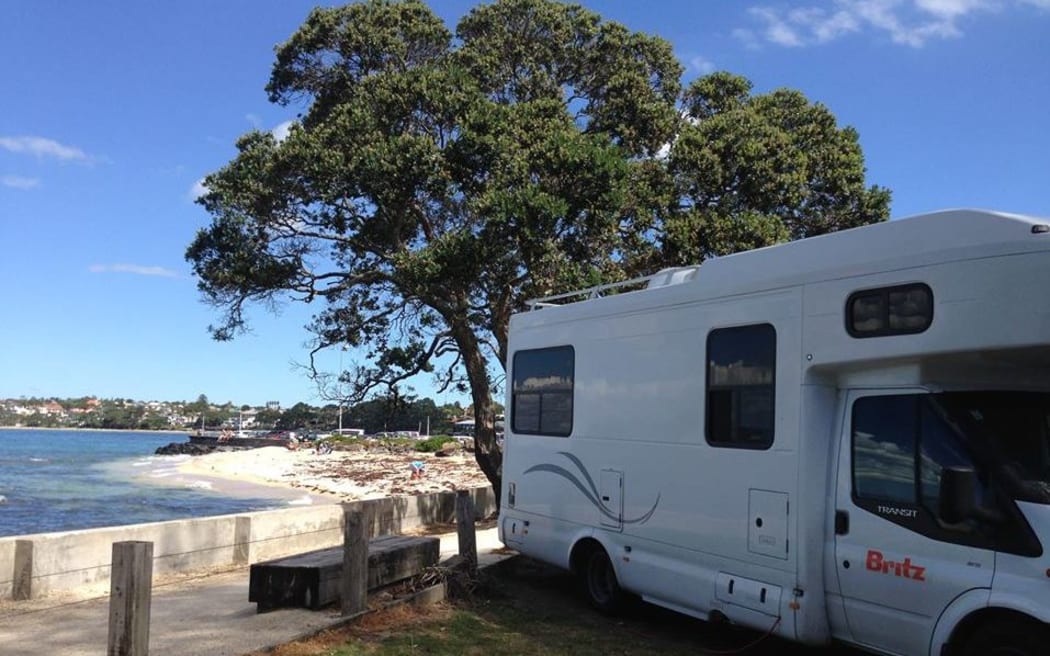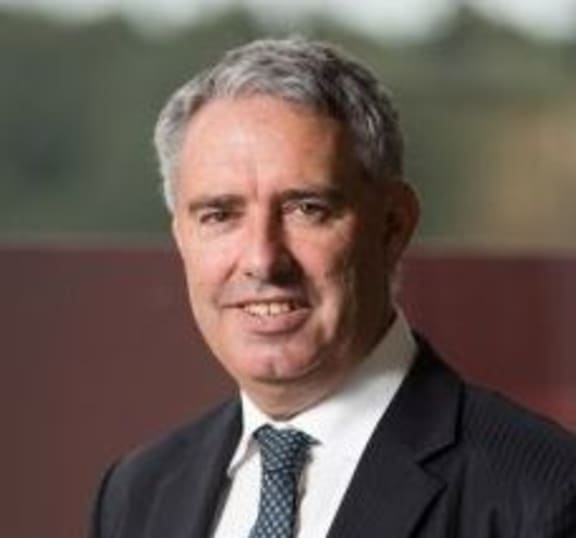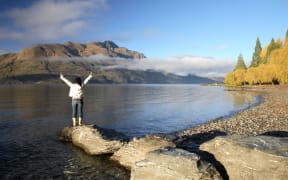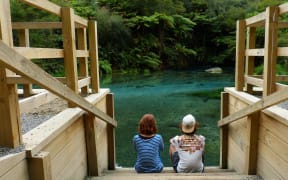A new funding system is required to ensure smaller communities see the profits being brought in by record numbers of tourists, Local Government New Zealand says.

A campervan at Takapuna Beach holiday park. Photo: RNZ / Tiana Barns
Associate Tourism Minister Paula Bennett said the latest Monthly Tourism Estimates showed tourism spending had grown in most regions, with Nelson being the fastest growing with an 11.7 percent increase in the year to August, to $304 million.
That was followed by Otago up 9.6 percent to $3.2 billion, and Auckland up 6.9 percent to $6.7b.
Local Government New Zealand president Lawrence Yule said the current funding system placed an unfair burden on ratepayers, and while it was not a 'crisis', there was an urgent need to adopt a completely new funding regime.
"I would hope next year that we can actually have a holistic long term structure in place, that can go through next year's Budget and that will provide that certainty for communities going forward.
"We've had discussions with the government over a number of months and we're pleased they announced a $12m package in the Budget over three years, which is $4 million a year specifically for regional NZ."
But Mr Yule said that wasn't enough.

Lawrence Yule said a long term solution was needed to help councils manage the tourism influx. Photo: LGNZ
"We've indicated to the government, and they are prepared to listen, we need to assess the actual demand.
"There's work being done by the New Zealand Tourism Industry Association, Air New Zealand and ourselves to look at some other options, the scale of investment needed and how should that be funded.
Longer term solutions needed to be worked out in a partnership between central and local governments, as well as the tourism industry, he said.
Mr Yule said for many communities the cost of putting in infrastructure to make New Zealand a first world tourism destination was expensive.
He said with a small rates base, some communities could not afford those costs, but Local Government New Zealand wanted to ensure they received some of the benefits.
"But in many cases, the cost of that is disproportionate to the income they receive from the tourists."
Mr Yule said the government, in conjunction with Local Government New Zealand, needed to adopt a long-term strategy to ensure infrastructure in the regions could cope with the crowds of tourists putting pressure on their facilities.
"We need to find another way ... including whether there is departure tax increases, whether there is a share of the GST component of tourism ... a way of funding this infrastructure that's needed for, but isn't coming out of, the ratepayers' pocket."
Local Government needed some help with that, said Mr Yule, and while it did not expect the government to fund it all, a partnership funding model was the answer it aspired to.
"If we're not careful that imposition (on ratepayers) will mean the investments are not made and the total New Zealand tourist attraction is diminished.
"There is a very good argument to say, actually tourism is booming, the government is collecting more tax revenue because of the high number of visitors, so then some of that revenue should be reinvested back into the infrastructure to support it."





